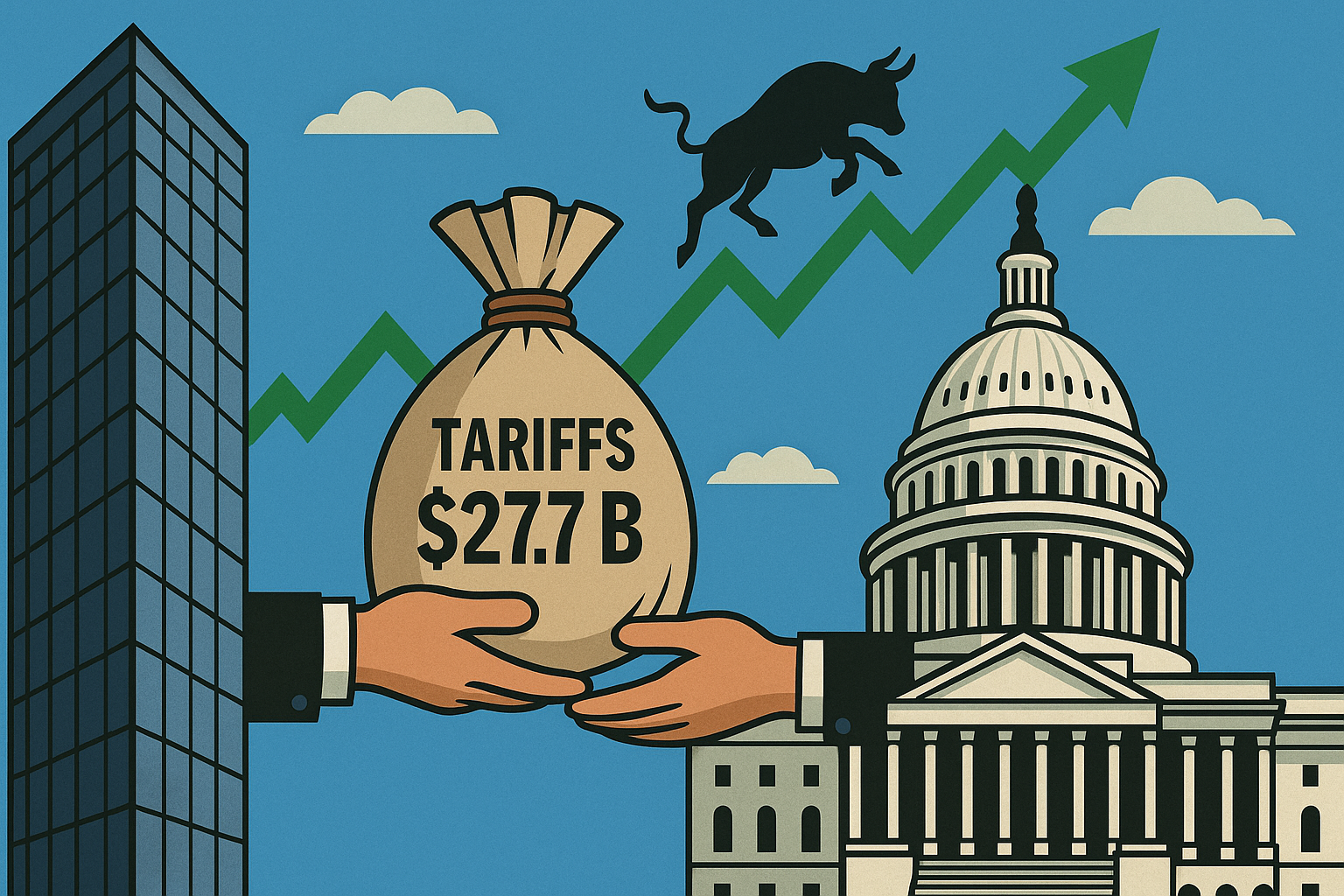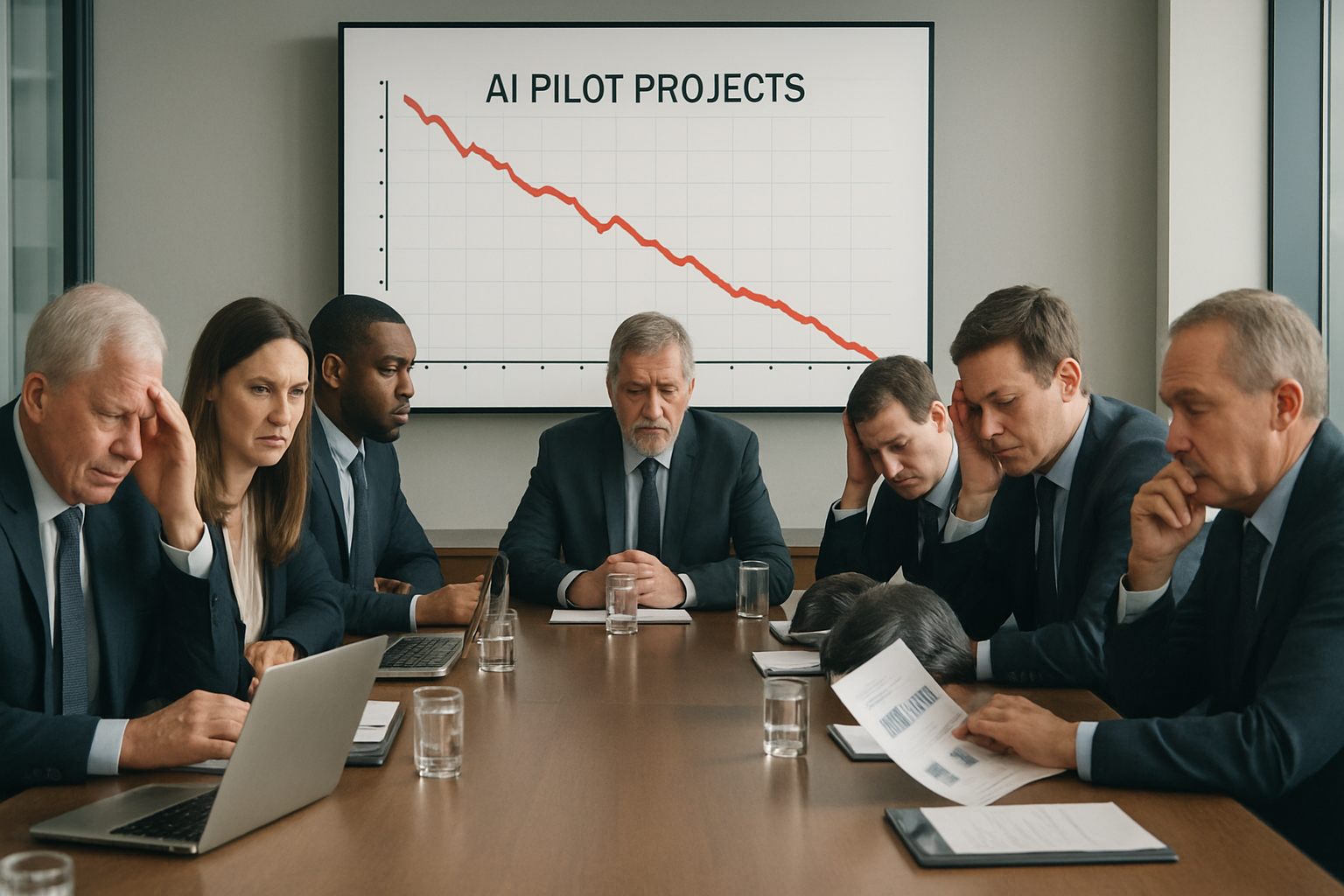The stock market's been partying like it's 1999 while American companies quietly handed over a staggering $27.7 billion in tariff payments last month. Yeah, you read that right—billion with a B.
If that strikes you as one hell of a disconnect, join the club. It's like watching someone celebrate their promotion with champagne while simultaneously getting their car towed. Something doesn't add up.
Here's the thing about tariffs that often gets lost in the political shuffle: they're not paid by foreign governments. They're taxes collected at our borders, paid primarily by American companies importing goods. When Trump boasts about this "incredible" haul for America, he's essentially cheering the fact that U.S. businesses sent an extra $27.7 billion to Washington instead of to shareholders, workers, or reinvestment.
So why isn't Wall Street freaking out? I've covered market reactions for years, and several theories might explain this head-scratcher.
The market could simply have "priced in" these tariffs months ago. Investors hate surprises more than they hate bad news. With tariff increases telegraphed well in advance, companies had time to warn investors, adjust forecasts, and reconfigure supply chains. Markets are forward-looking beasts—they're already thinking about next quarter while we're still digesting last month's numbers.
There's also the matter of scale. Twenty-seven billion sounds astronomical (and it is!), but context matters. American corporate profits ran around $2.3 trillion last year. Even annualized, these tariffs represent less than 2% of overall corporate earnings. Not insignificant by any stretch, but perhaps not catastrophic either.
Distribution plays a role too. These tariffs don't slam every company equally. Some sectors get absolutely hammered while others barely feel a pinch. The market's heavyweights—think Apple, Microsoft, Amazon—have sophisticated global operations that can partially offset tariff impacts, not to mention the pricing power to pass some costs along to consumers.
Look, there's another factor at work that nobody wants to talk about: the current market is riding a sugar high. With rate cuts on the horizon and AI enthusiasm still bubbling, investors seem willing to overlook what would normally be considered pretty significant headwinds. It's like ignoring your toothache because you're at Disneyland.
I spoke with several economists last week who suggested something more troubling. Perhaps—and this is the uncomfortable part—the market has simply become detached from fundamentals like, you know, profitability. When everything becomes a momentum play, actual business operations take a back seat to narrative and vibes.
The basic math remains stubborn (as math tends to be). When companies pay billions more in tariffs, something's gotta give. Either profit margins shrink, prices go up, sales volume falls, or some combination thereof. None of these outcomes naturally boosts corporate earnings or stock prices.
What fascinates me most is how we've normalized what was once considered extraordinary. Remember when tariffs were emergency measures? Now they're just... Tuesday. Companies have adapted by reshuffling suppliers, tweaking pricing strategies, and building tariffs into their long-term planning. The market has largely shrugged and moved on.
But—and this is a big but—there's likely a tipping point somewhere ahead. Markets can absorb a 2% profit hit, but what about 5%? Or 10%? At some threshold, even the most optimistic AI-fueled growth story can't overcome the arithmetic of businesses paying massive new taxes.
For now, we're living in this bizarre economic twilight zone where corporate America sends billions in extra cash to the Treasury while markets hit record highs. The market, in its collective wisdom (or perhaps temporary madness), has decided this paradox isn't worth losing sleep over.
At least not yet.
Things happened: Treasury yields touched 4.5% last week as investors dialed back their rate-cut fantasies... Arm Holdings surged a whopping 35% after crushing earnings expectations, showing the chip sector's still got juice despite Nvidia's recent stumbles... And down in Argentina, libertarian firebrand Javier Milei floated dollarization, sending Argentine stocks on a roller coaster ride that made even seasoned traders reach for Dramamine.




